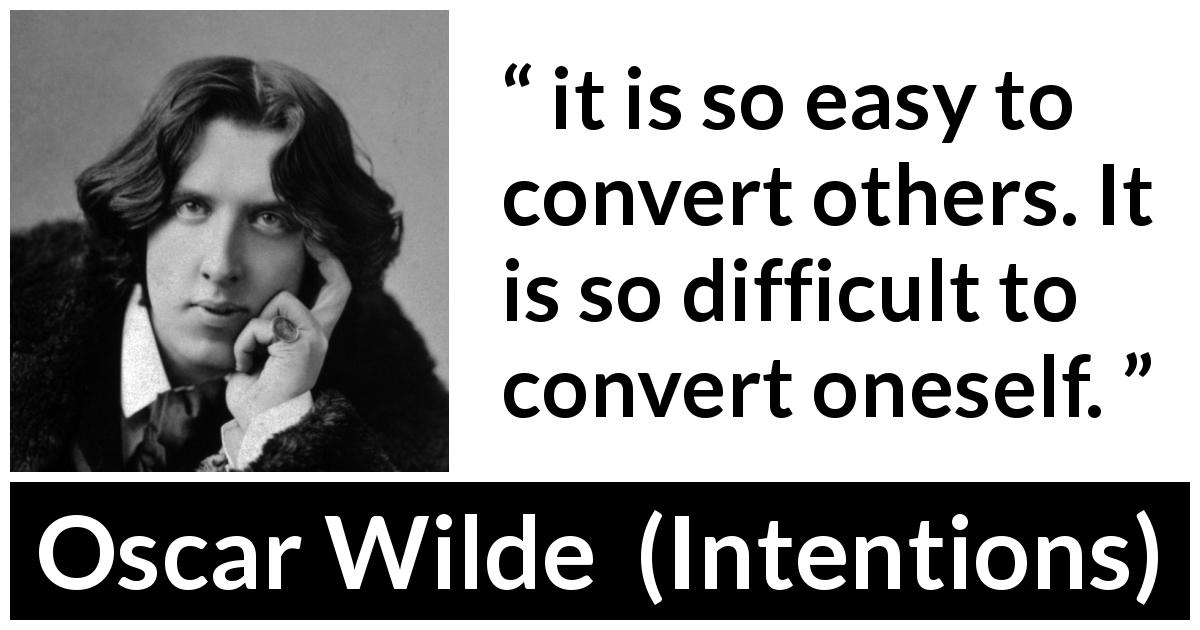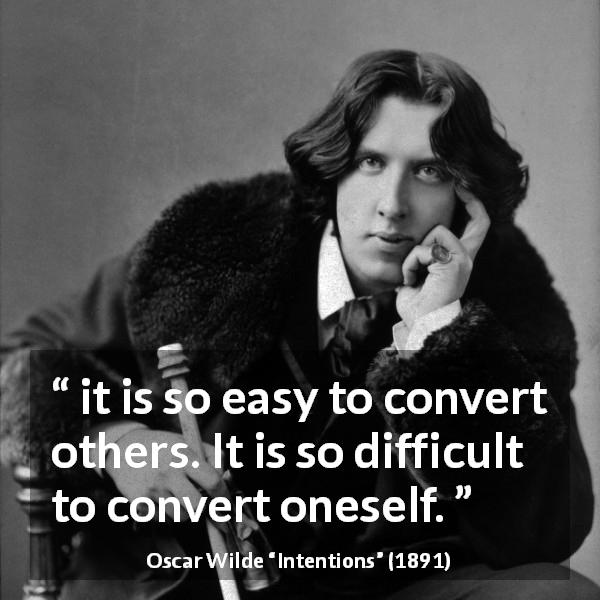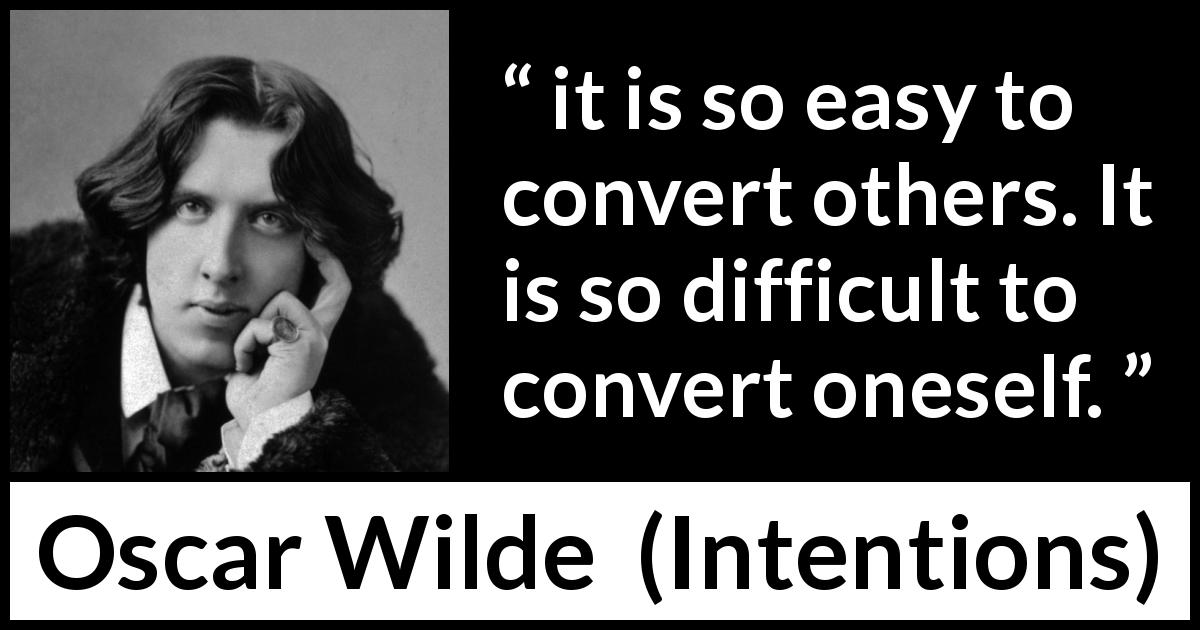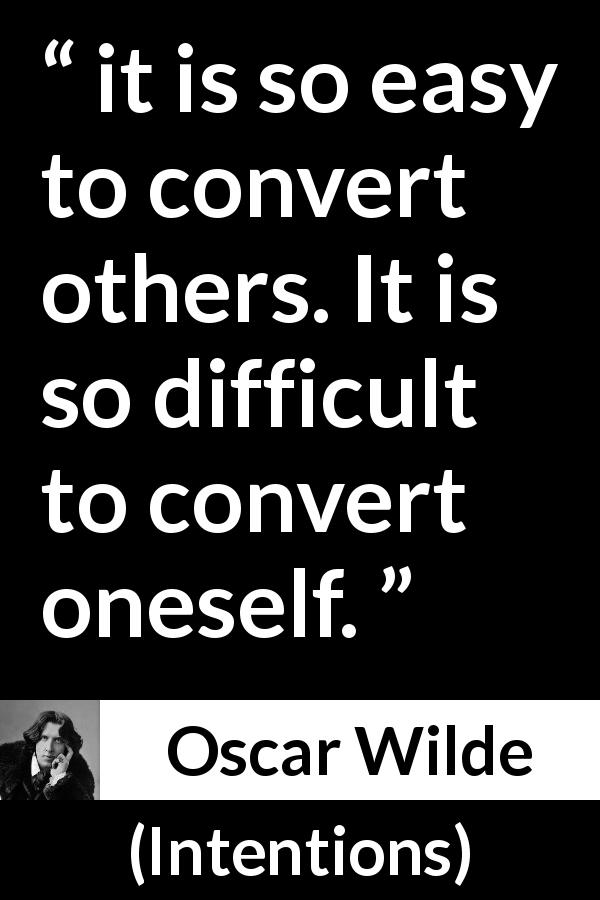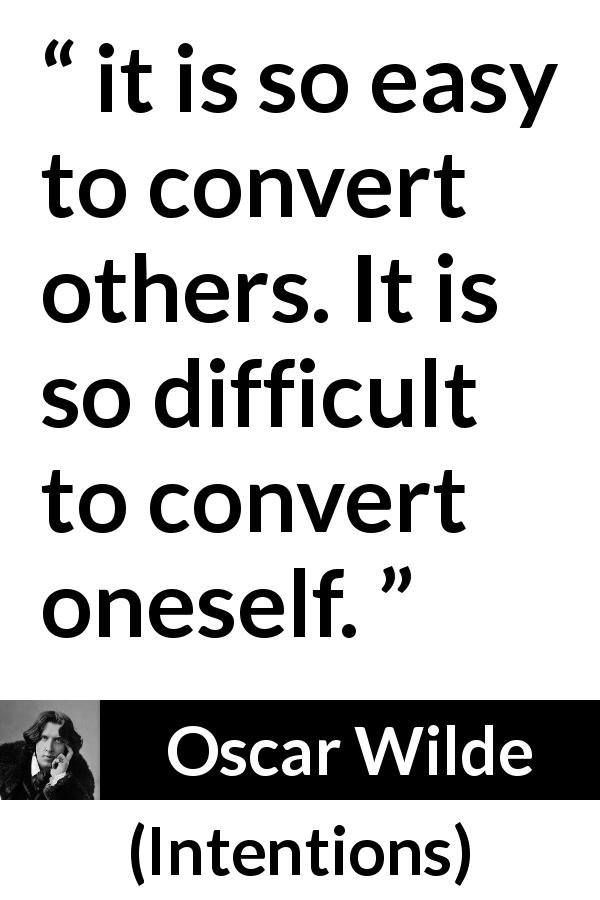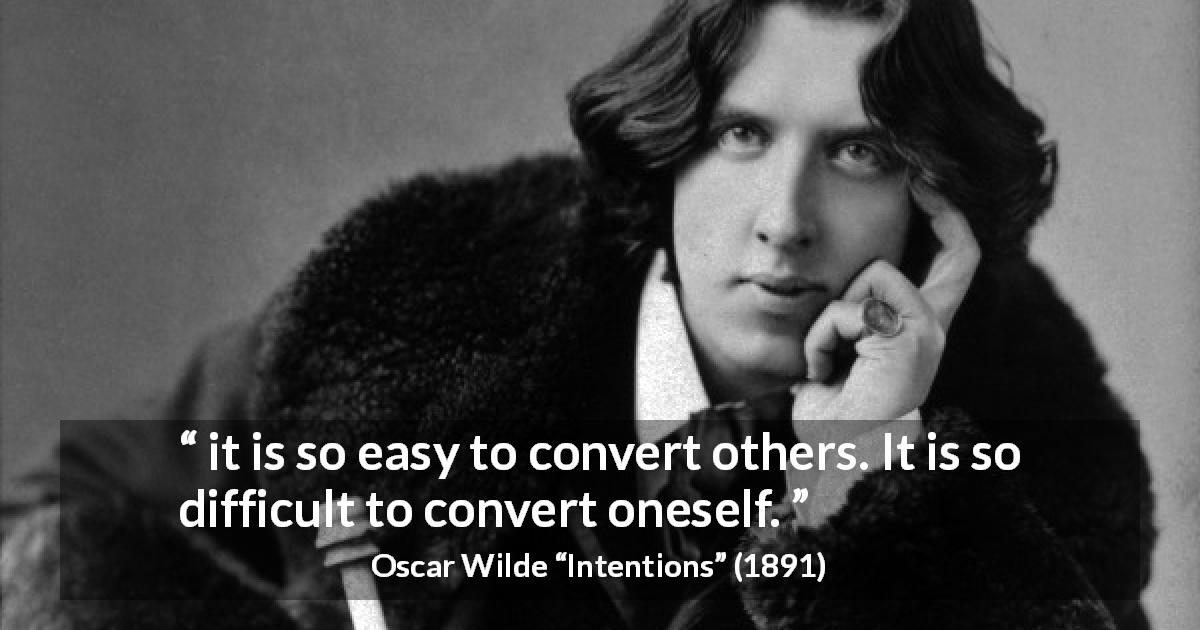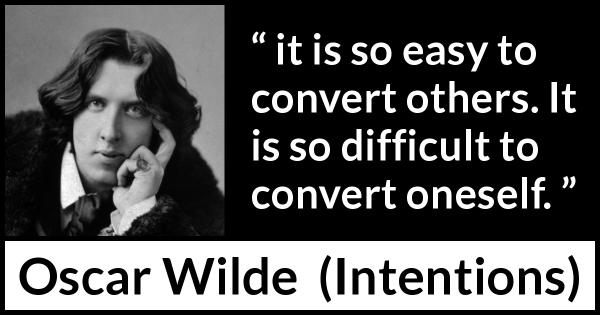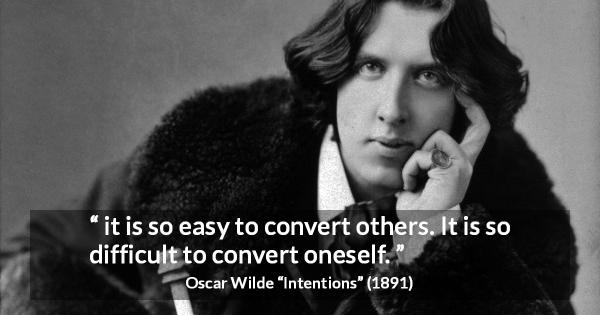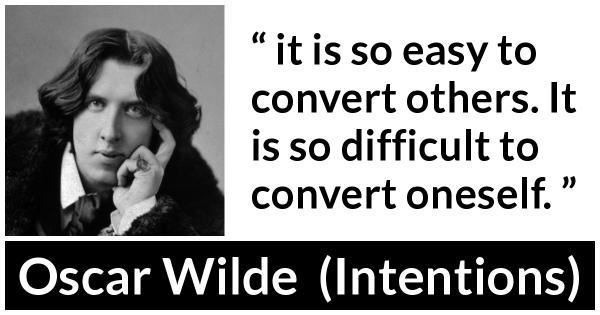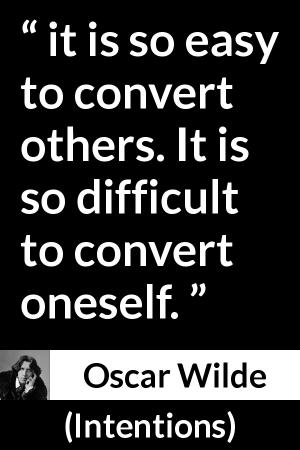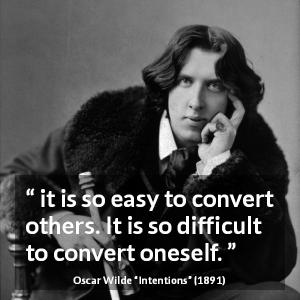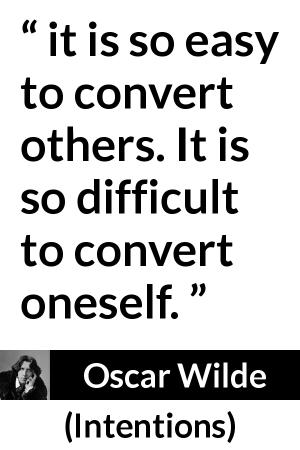“ it is so easy to convert others. It is so difficult to convert oneself. ”
Oscar Wilde, Intentions (1891). copy citation
| Author | Oscar Wilde |
|---|---|
| Source | Intentions |
| Topic | self persuasion conversion |
| Date | 1891 |
| Language | English |
| Reference | |
| Note | |
| Weblink | http://www.gutenberg.org/files/887/887-h/887-h.htm |
Context
“By its means he can exhibit the object from each point of view, and show it to us in the round, as a sculptor shows us things, gaining in this manner all the richness and reality of effect that comes from those side issues that are suddenly suggested by the central idea in its progress, and really illumine the idea more completely, or from those felicitous after-thoughts that give a fuller completeness to the central scheme, and yet convey something of the delicate charm of chance.
Ernest. By its means, too, he can invent an imaginary antagonist, and convert him when he chooses by some absurdly sophistical argument.
Gilbert. Ah! it is so easy to convert others. It is so difficult to convert oneself. To arrive at what one really believes, one must speak through lips different from one's own. To know the truth one must imagine myriads of falsehoods. For what is Truth? In matters of religion, it is simply the opinion that has survived.” source
Ernest. By its means, too, he can invent an imaginary antagonist, and convert him when he chooses by some absurdly sophistical argument.
Gilbert. Ah! it is so easy to convert others. It is so difficult to convert oneself. To arrive at what one really believes, one must speak through lips different from one's own. To know the truth one must imagine myriads of falsehoods. For what is Truth? In matters of religion, it is simply the opinion that has survived.” source
